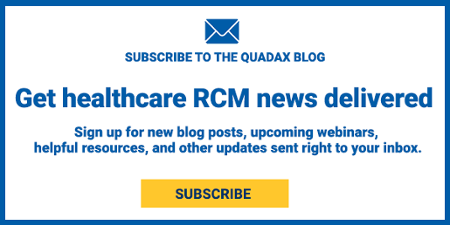Concerns about test price gouging may lead to greater scrutiny of costs
Many experts say that an essential component of moving forward from the COVID-19 pandemic is wide-spread testing. Some organizations are already using a negative COVID-19 test as a requirement to return to work, and airlines are experimenting with testing before long-haul flights.
As the proliferation of ‘routine’ testing grows, so do the headlines about COVID-19 test price gouging. Recent articles such as The $7,000 Covid test: Why states are stepping in to shield consumers and 'I was floored': Coronavirus test prices charged by some hospitals and labs stun consumers, spur questions have the potential to alarm both legislators and consumers. Unfortunately, the industry outliers cited in the articles can damage the lab industry's reputation as a whole. Understanding the circumstances of test price gouging and the regulations to prevent it can help your organization take proactive steps to protect your lab's reputation as cost comes under greater scrutiny.
Test price gouging and out-of-network coverage
According to a recent survey by America’s Health Insurance Plans (AHIP), almost ten percent of diagnostic and antibody test claims were from out-of-network providers (OON). Of that ten percent, one-in-ten OON claims charged $390 on average, which amounts to three times the $130 average cost in the commercial market. The average OON charge was $185 ($55 more than the commercial average), with almost 40% of diagnostic OON tests exceeding the average.
According to the Coronavirus Aid, Relief and Economic Security (CARES) Act, insurance companies must pay for medically necessary COVID testing with no cost-sharing – meaning without charging copays, coinsurance or deductibles – and no prior authorization. Therefore, when insurance companies receive an OON bill for medically necessary COVID testing, it must be paid according to the OON agreement. In many instances, there is no contract and the insurance company must pay the full amount charged.
Federal and state governments are trying to curtail price gouging
An overlooked part of the CARES Act legislation focuses on price transparency for COVID-19 testing. The facts to know:
- Providers of diagnostic testing are required “to make public the cash price for a COVID-19 diagnostic test on the provider’s public internet website.”
- The price must be published for as long as the COVID public health emergency persists.
AHIP has called on the federal government to enforce the price-posting requirement as a step to reduce price gouging.
State insurance regulators in Washington, North Dakota, Oklahoma, Georgia, and Tennessee have taken steps to curtail excessive billing opportunities. Insured patients in Washington can no longer be billed for provider-ordered testing. North Dakota, Oklahoma, Georgia and Tennessee have capped costs.
As testing becomes more accessible, and in some cases, required to return to work or school, the cost is likely to come under greater scrutiny by the public.
How the FFCRA affects ‘routine’ testing coverage
The Families First Coronavirus Response Act (FFCRA) is the base legislation that ensures medically necessary COVID testing will have coverage; the CARES Act amends certain sections of the FFCRA to provide clarity. FFCRA has made provisions for reimbursement of at-home testing when a provider has ordered it. It is important to note that it does not require coverage for “surveillance or employment purposes.” In other words, both at-home tests and surveillance testing are available for coverage only when medically necessary, which requires some form of medical consultation.
It is logical to reason that the notion of ‘routine’ testing not being covered by the CARES Act will come as an unwelcome surprise to many, especially after all the publicity around ‘free’ testing. Time will tell how payers react to claims that do not have medical necessity.
In the event that an increasing number of claims are denied because they are for return-to-work or other non-medical purposes, labs can take the proactive approach of ensuring they are following price transparency legislation and confirm their pricing is competitive. Steps taken now may avoid potentially reputation-damaging situations in the future.
About Quadax
When your resources are being pushed to the limit to secure appropriate reimbursement for lab services you provide to your clients and their patients, having the right revenue management partner can protect your organization’s cash flow with the ever changing payer landscape and requirements to support your financial goals. In addition, we can help your lab deliver outstanding service to help your patients and lab navigate the specific challenges that impact hospital and independent lab operations on various fronts. Learn more about how Quadax can ensure optimized reimbursement efforts focusing on quality and cash collections so your lab can deliver exceptional clinical value to your client base.
Let’s take on the revenue cycle together!


